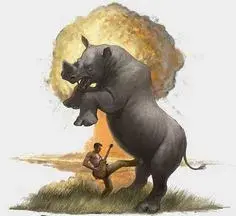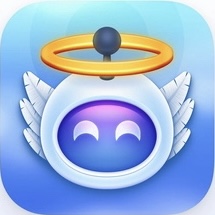I’ve spent more than 7 years in Mastodon, and in my experience, new users always come in with a Twitter mindset, then getting a cultural shock because they come to Mastodon expecting a Twitter experience and end up finding something strange and bizarre.
To soften the blow, I’d like to explain the cultural differences between Mastodon and Twitter.
What Twitter was:
- You could follow microcelebrities (or “influencers”) to read interesting things
- You didn’t reach people unless you got lots of likes quickly, so it became a popularity contest
- The algorithm decides what you read and how you engage, even if it’s negative content or something bad for your mental health.
- Toxic people drew others to quote posting, so it became a yelling competition. You didn’t build community, you built followers by standing on a platform and holding a megaphone.
- Unpopular users just yell to the void.
What Mastodon is:
- A bunch of communities of people with diverse interests and real lives.
- Mastodon servers (instances) are careful of who they federate with. Some servers just moderate poorly and there are too many assholes.
- There are microcelebrities, but they’re NOT looking to be popular. They just post the things they do; they’re popular because their lives / hobbies are interesting.
- In Mastodon, you reach people who are actually interested in your stuff. You don’t need to game an algorithm. There is no algorithm, people ARE the algorithm.
- If you don’t want to engage with someone, you can block and report. Unlike Twitter, Mastodon admins do take reports seriously (unless it’s one of the big instances; then good fucking luck). Reporting is encouraged on Mastodon, it keeps the community clean.
- Because admins often maintain the server using their own money, it’s in their best interest that the community is healthy. (Unless they’re assholes, but their instances get blocked quickly)
- There are no quote posts. You can paste a link to the other person’s post, but it is discouraged because we know where that leads.
Longer explanation:
Mastodon has an entirely different culture compared to Twitter. Mastodon was founded and populated by people who believed Twitter was too toxic and corporate-driven. Mastodon is full of gays, transgender folks, sex workers, artists, furries, autistic people, etc.
These people were driven out of the big platforms (Facebook, Twitter) by hate and discrimination. These people have experienced sexism, homophobia, transphobia, ableism, body shaming, etc. in their lives. It follows that the majority of Mastodon is left-leaning, anti-conservative, communist and anti-corporate.
Furthermore: Because it started (or quickly became) as a sort of safe haven for queer folks, they were more open to sincere posting. They post their problems, the discrimination they’ve experienced; their body dysphoria; depression; homophobia; transphobia and racism. And they give each other support, even economic. In my timeline I see posts asking for emergency money more than once per day.
If you wonder why this doesn’t appear on Twitter, it’s because the Algorithm filters them out. The public, the customers don’t like hearing about people asking for money not to get evicted. They don’t like to hear how people were harassed the other day by some karen who believes they’re a man in disguise.
But Mastodon is different. People talk about their daily lives because they know their followers will receive 100% of their posts. This is how communities are built.
Mastodon is not, and never aimed to be a Twitter replacement. It was meant to be something different; a place where you could form communities and build connections without Big Brother examining you or deciding how you should behave online.
So the next time you look for “interesting people to follow”, it could be possible that you’re entering Mastodon with a Twitter mindset. No Toto, we’re not in Kansas anymore.
Start following people you think are interesting in YOUR instance. Then start seeing their boosts and follow people you think are cool. Little by little, expand your network, prune your follows and block / mute people you think are obnoxious, and keep building and shaping your network like a beautiful bonsai tree.
The time you invest on building a network from scratch is worth it: You will meet many interesting people, and you will meet new friends; real friends, not just a series of followers whom you have to entertain.
I feel like this post is basically saying “our hammer isn’t a hammer because we put a really nice grip on it and it’s being wielded by a very nice person”. At the end of the day, it still drives a nail.
Just because there’s a cultural difference doesn’t mean it isn’t the same type of social media tool. Simply call it a better form of Twitter and be done with it.
Yeah, in the end to move you need your interest (or topic or interesting person you want to follow) to exist in Mastodon. For most people, the topic (or interesting people they want to follow) only exist in Twitter, so there’s no incentive for them to move from Twitter.
Yep. And the claim that there are not celebrities, or that if there are they are only popular because they’re sharing their interests, is comical. Whenever I pull up the main popular feed it’s the same slew of people that would have been copied to reddit on PoliticalHumor (Qasim Rashid, George Takei, etc.) sharing snarky political takes fiending for views.
I don’t even necessarily disagree with them most of the time, but it’s clearly the same type of celebrity engagement that Twitter has.
I guess I never used Twitter as “intended”. I always just cultivated my follow list and watched the people I was following, and looked at the ppl they were replying to & retweeting to identify new people to follow.
For me, Mastodon has been much the same.
Me too. I always saw Twitter as the internet’s “stream of consciousness” and I use Mastodon in much the same way. Now that I’m all set up, the only real difference is that the stream is somewhat more sedate and far less likely to encounter a section of rapids.
Yeah, I was thinking the same. This just sounds like my usage of Twitter, just without the negatives of Twitter. I have my community on there, but I never really ventured outside of it or followed celebrities or influences.
So I might just actually join. I hate the idea of starting over, but oh well. I’ll probably log onto Twitter for the first time in awhile, let people who I talked to know I’m on there, and see if anyone else is as well.
If you have to write a long ass post telling users that they’re using your software wrong, then you wrote bad software.
Don’t want people to think it’s supposed to be Twitter? Don’t model the entire UX after Twitter.
You’re missing OP’s entire point. The two platforms are completely different. You see, Twitter is a microblogging platform, but Mastadon is a microblogging platform. They’re as different as Word and Pages, or Excel and Sheets, or Photoshop and GIMP. Just entirely, utterly different in every way, with the sole exception being that they are functionally identical. (-:
The sane take.
This is not a matter of good vs bad, or right vs wrong. It is about expected vs unexpected. The users expected a similar experience to Twitter but the goal of Mastodon is not to emulate Twitter.
A lot of the UI/UX may resemble Twitter, but the high level decision making, design, and stakeholders of the project are completely different.
Do you mean to say that Mastodon and similar projects have to adopt an entirely different UI/UX that is unintuitive in order to produce something different just because Twitter is what they expect? Are you aware that big tech pours in inordinate amounts of money into psychology and UI/UX research to ensure they provide experiences with the lowest amount of friction possible?
This feels rather unreasonable, uninformed, and confused in motivation.
This is not a matter of good vs bad, or right vs wrong. It is about expected vs unexpected.
Yeah, if you copy Twitter’s UI users will expect it to behave like twitter.
It’s not complicated, mastodon just kind of sucks from a user perspective compared to twitter while completely copying it, leading users to dislike it.
Decentralization is not a feature, it’s an implementation detail.
And I’ve worked at FAANG companies developing their apps and am well aware of precisely what they do to get people to use them, and it’s not make a carbon copy of twitter that’s harder to use.
Yeah, if you copy Twitter’s UI users will expect it to behave like twitter.
Again, breaking from that expectation is not an inherently bad thing. Fediverse projects are not looking for some stupid IPO pump and dump exit strategy.
Decentralization is not a feature, it’s an implementation detail.
Decentralization is an implementation detail to achieve the feature that is “an online service that doesn’t treat you like cattle and owns all of your fucking data”. Clear?
Still not a feature users care about.
Still not a feature users care about.
What planet are you on? What “users”? Lemmy users? Obviously they do!
Twitter users? Who cares!? Privacy, data ownership, apps that don’t fucking implode and DDOS themselves because the owner is an absolute moron, etc. may not be features most Twitter users care about.
But, why should anyone here care? Fediverse projects are not in a market competition to make money. These projects exist to add value to the lives of its users without perverse corporate incentives ruining everything.
I don’t think I will find myself asking, “What app would Twitter users want me to design?”, ever. Why would you want to recreate something as awful as Twitter?
I see you point but I think you are being harsh here. It is clear that it is not to be taken literally that Mastodon is nothing like Twitter in therms of looks. I think the spirit of the OPs comment is that it is the style of conversations, atmosphere and culture that each of them foster what makes them somewhat different.
I think the spirit of the OPs comment is that it is the style of conversations, atmosphere and culture that each of them foster what makes them somewhat different.
If you want to organize discussion around topics, model it after reddit, where you subscribe to topics.
If you want to organize discussion around people, model it after twitter, where you subscribe to people.
Kbin and lemmy do a good job of modelling things after reddit, where you subscribe to topics. The decentralized nature just adds another layer of community duplication, but that was already a problem with reddit (r/gaming and r/games) and isn’t that big a deal since all are subscribable from your preferred instance as long as it’s federated with everyone.
The problem with Mastodon though is that it wants to model itself after Twitter where you subscribe to people, but unlike with topics, having duplicate copies of people is a real problem since it makes it hard to trust that you’re actually subscribing to the right person and not a spam account. That is an extremely real problem that Mastodon tried to side step by pivoting to following topics, but at it’s core the mastodon/twitter UX is not formatted for that, it’s formatted for following people in real time and Mastodon seems like it has ignored that and is trying to insist that it’s it’s own thing that no one actually wants. Organizing discussion based around servers is not a user helpful format, it’s exposing unwanted technical implementation details to the user in a way that only a tech nerd could ever love.
If Mastodon became as popular as Twitter it would end up with at least part of it being almost the same as Twitter. The main reason for the differences are that very different types of people are using the two platforms currently.
I apparently have always used Twitter wrong since I mostly just lurk and people I follow don’t get into flamewars or whatever they’re called. It’s kinda unrecognizable for me how you describe Twitter.
Mastodon on the other hand is just pretty dead for me. I haven’t found that much interesting stuff and I don’t really know where to look.
From my perspective, they function pretty similarly. I don’t see the toxicity you’re talking about. Quote tweeting is handy because it’s not used to put down others but just, you know, sharing and adding something to the original tweet.
I can definitely agree, Mastodon feels empty and there’s not alot to look out for
It’s very similar to how Twitter felt in its early years. You had to know exactly what you wanted to see (topics, people), otherwise you’d feel lost.
Have you tried searching for hashtags and following ones that look interesting?
I’m not a fan of the “community” aspect of much of the Fediverse. I have more than one interest. My entire persona isn’t just one thing. I don’t want to log in to a different account every time I want to talk about something different.
I just join a generic-ass instance (mas.to on Mastodon, lemmy.world on Lemmy), and follow the stuff that actually interests me. (hashtags & a couple users on Mastodon; communities on Lemmy)
Following literally everything that gets farted into an entire instance is just drinking from a firehose.
This was the reason I ended up hosting my own general use instance. It’s mostly for my own benefit, but I also wanted to make something open to users that want to have a nice, short username with a silly URL.
I also bailed on mas.to, and made my own single-user instance…
Please take the below as said with the most respect. Especially as I am very empathetic of the struggle of communities finding a space away from hate.
My … concern is:
What you describe is … Reddit / Threadiverse model. Small tight communities focused on openly discussing niche topics. This is why I am on Lemmy.
I use mastodon as “microblogging” - public posting on topics of interest and honestly as an RSS feed since many news orgs’ Twitter feeds are ported over to masto.
But my problem is. If mastodon is a place where we form tight private communities. … and Lemmy is a place where we form tight private communities …, and kbin is a place where we form tight private communities … why do we have all three? What is the difference?
We need fediverse software with clarity of purpose. And the purpose you described … does not fit at all to me with the way things, like replies, seem to work in Mastodon.
Does that make sense?
(And I fully admit I may completely be wrong in this opinion)
I’ve been using Mastodon since Twitter was taken over by Musk, so I’m not a super long-term user, but I can give my perspective:
Platforms like kbin / lemmy are more like “topic” communities. Like people on kbin create “magazines” and on lemmy they are actually “communities”. From the user perspective, you can just look for these communities you are interested in and sign up to get updates from them.
Platforms like Mastodon are more like you and specific people you like to see content from. So you find people you like to hear from and you follow them to get their updates. They may post on subjects you aren’t interested in but oh well, that’s up to them.
Both formats can produce desirable, tight-knit communities, but they just use different structure. In my opinion, the kbin / lemmy style is more accessible in terms of finding people interested in a specific subject but feels less personal since you are just all there to talk about a specific subject. On Mastodon, when I find people posting content I like, I end up learning more about the random nonsense they are interested in. Like my feed there has a ton of moose pictures now because one person I followed likes to post pictures of moose. I don’t mind seeing them, but I never expected to see so many moose.
TLDR: Mastodon is about following people, kbin / lemmy are about following topics.
I see it in a similar way to how having multiple 3rd-party reddit apps is valid.
If you want to develop a 3rd-party reddit app, the aggregation and structure of the way content is delivered is already determined by reddit. In principle the task is to build a GUI around that.
Fediverse content could be threadiverse-style, or microblogging-style, or both. So to develop an app for this, first you’d need to figure out those aggregation and structure prerequisites. Lemmy, Kbin and Mastodon are like different apps for fediverse content which each take a different approach to this. But since it’s FOSS, there is no 1st / 3rd party, they’re all made by one collaborative project.
If I’m not wrong, generally those that prefer threadiverse style will likely end up migrating to Lemmy or Kbin organically, users that prefer microblogging to Kbin or Mastodon, and users that engage in both might use Kbin for a unified presentation. Or, they might prefer discrete presentations which each specialise in the content type, and use both Lemmy and Mastodon. I understand this is a very loose set of overlapping parameters, but the clarity of purpose here is determined by the individual user’s chosen method(s) of interaction with fediverse content. This is definitely a more abstract notion for a user to think about than simply preferring a given visual style like with a reddit app.
Wherever users lie on the spectrum of use cases might not be clear enough to make generalisations like “lemmy is better than kbin for reddit users” accurately, but I think it’s clear to the users individually either a) the type of things they want to post/see or b) the existing forums e.g. reddit, twitter that they want to replace. So while it’s a more individual purpose, I don’t think it’s lacking in clarity to those individuals.
The culture that exists within the communities that use these pieces of software isn’t determined by the software, it’s determined by the instances and the users. But the different approaches to aggregation/structure might lend themselves better to certain kinds of community in a similarly organic way, which would also contribute to shaping which users are on which platform.
The difference between Lemmy and Mastodon, is that the former is topic centric. There are subreddits and each post is topic specific. Mastodon is people centric. You’re not on Mastodon to see what’s happening around the world or what interests you, you’re on Mastodon to see what your friends are up to. It’s the difference between going to the public plaza and going to an expo.
I dunno, this is mighty rose tinted. I’ve run into some spectacular assholes on Mastodon, worse than on twitter, in fact. Most of whom are those aforementioned communists, being just as grating and insane as the nazis are over on twitter.
To be fair, all I’ve heard from Mastodon is “it’s decentralized Twitter”. I can’t blame it on the newcomers, intentional or not that’s the way it’s presented. Also, ideologically platforms should strive to be neutral and seeking common ground. It’s one thing if you access a specific community (magazine/ subreddit or what have you) but when the platform itself is expected to lean towards a certain ideology, it ends up being an echo chamber that both works as a circle jerk and prevents others from joining in. I get that instances are self hosted and basically your own turf online so you get to do what you want, but defederating over personal beliefs is kind of authoritarian and detracts from the end user experience.
I’m not shitting on Mastodon here, to be very clear. On the contrary, I want the Fediverse to be the best it can be and find a good balance between growing to a size where it’s worth keeping it as a general home without being tethered to other social media for your frends and different perspectives and content but also keeps the values of decentralized and community-driven space.
Unless you just want a niche space isolated from the rest of the world, compromises need to be made on both ends, from the more hardcore and passionate members of the community and the “average online user”.
A lot of this has more to do with the mindset people approached Twitter with than the service itself. Honestly, I always approached Twitter the way you describe Mastodon here. I just wanted to find people who had interests similar to mine and connect with them, as well as find interesting news. Maybe that’s why moving from Twitter to Mastodon has been to seamless. Just a lot less anger and hate on Mastodon from what I’ve experienced. A much nicer atmosphere.
It’s how Twitter started. You followed people because they were your friends or had similar interests. It being a platform mainly for celebrities and influencers came later.
What you are describing about Twitter wasn’t my experience with it at all. I just followed my friends, interesting people I met at events, etc. I wasn’t looking to be connected to influencers or whatever was the popular chatter of the moment, and I freely used the block feature to filter out people who posted stuff I wasn’t interested in. It worked just fine like that. Decent experience (too shallow for my preference, due to the nature of the platform, but not unpleasant).
I feel like most social media platforms are, to a large extent, what you make of them. Like my Facebook feed is pretty nice. It’s about 60% family and friends that I like, 20% interest groups (kayaking and hiking mostly), and 20% ads for stuff I’m interested in (mostly authors right now). There’s none of the toxic bullshit that a lot of people complain about.
So yeah, I agree with the ‘follow people you are interested in’ advice, but that’s not unique to Mastodon or Lemmy or whatever.
Your title is misleading.
Mastodon can be and should be the new Twitter, in that it’s the new place/facility for people to be able to microblog each other.
But it shouldn’t become the harsh/bad environment for conversation that Twitter currently is, which is what you’re speaking to (if I’m understanding you correctly, from what I just read).
Don’t snatch defeat out of the jaws of victory, with post titles like this. You only get one chance of getting people to move over from one social platform to another.
I don’t think it’s misleading or turns people off. I found it very informative and clicked on it because of the title.
I was honestly about to create a Twitter account, right before it was purchased, so I could follow announcements from podcasts and other Internet personalities that interested me. I never did create one though because of who purchased it and the chaos that followed. I didn’t want to support it.
With the recent Reddit controversy, as many have done, I ditched them and began exploring the fediverse. I started with Mastodon, but really didn’t know what to do with it. Reading this post have me some insights on how to go about getting started with Mastodon.
Well I never said that it would turn people off, just that it sends the wrong signal.
But I can’t agree with you, I think it’s definitely misleading. The body of the post describe something different than the title does.
It all depends on what Twitter is to you.
To me, it’s short fleeting conversations I see with others and can be up to the second in its recency with events. I don’t care if I miss what someone said 17 hours ago
Mastodon does that well, just like Twitter did. It avoids the shit pretty well, which Twitter doesn’t do well.
It depends on what Twitter means to all of us, not just to you or me, individually.
You want to win the war, or you want to just F around? You decide.
Admittedly the thing I miss most about Twitter was the sorting algorithm. Creating an interesting and engaging “experience” with Mastodon has been challenging, but I’m getting there and it helps as more people join.
My advice to any new Mastodon users: spend maybe 10 mins at a time searching for good tags and users to follow. Give it a few days (maybe weeks) before you can expect to see a feed as rich as Twitters. Endlessly scrolling as a brand new user is very unproductive.
The lack of a sorting algorithm is something I have always appreciated about Mastodon. I want old-school social media, where I get shown the stuff I follow and that’s it. The way to find more people to follow is organic and sensible:
- You see the people you follow.
- You see what’s going on at your own instance and can pick out and follow what you like. (Possibly less helpful on general-interest instances, more helpful on a themed instance where you know the locals have that basic interest in common.)
- You browse and/or follow specific hashtags, and can pick out and follow what you like; there’s your specific interest-based discovery process.
- You see stuff the people you follow boost and can follow it if you like, just like in real life where your friends introduce you to their other friends who can become your new friends.
Any algorithm doing this work for you has also been tweaked to spoil the organic factor by prioritizing ads, forcing in entities who have paid to be put into your feed because the platform sold your eyeballs to the highest bidder, as well as forcing in flamebait selected to deliberately upset you and keep you arguing, which counts as “engagement.” Those have never been the reasons I used social media, I just want to build and maintain connections with real people like I always have both online and in real life. Mastodon and the Fediverse are built for that, while Twitter and Meta products are built against that.
I’m not autistic, but I have autistic relatives and I’m happy to see how welcoming the Fediverse has been to people on the spectrum. It made me sick every time I saw “autistic” used as an insult on Reddit or Twitter.
Ars Technica recently published an article very critical of Mastodon. The main takeaway is the argument that Mastodon won’t scale well to a large userbase, as the more instances there are, the bigger the server burden to everyone. And as most users are against corporate funded instances (they’d defederate from any that emerge), it may be unsustainable mid/long-term.
I wonder if these scaling-issues apply to Lemmy too? The instances make copies of posts/comments from other instances. They copy images too? And videos? If so, I imagine a future where only the bigger and wealthiest instances will survive.
And concerning moderation tools, I know they’ll improve with time. But how can a federated system like Lemmy do certain tasks that Reddit’s Pushshift enabled? Example: bots detecting and deleting re-posts, spam, bad actors across multiple communities, etc.
Mastodon does not need to scale well. Even if the userbase shrinks to what it was before the Big Twitter Exodus (or whatever you want to call it) of last year, it will be perfectly alright.
Mastodon was fun and enjoyable before. It does not need more users to remain so.
It’s only that because of the amount and type of people in there. If celebrities would join to Mastodon and their followers with them this would change. Which could be good. I have Mastodon and I think I follow good people. But I do miss some of those hits tweets that were so good that made me shown them to irl people.
I do understand the need/desire for some people of smaller semi-closed communities. But some people want also something big, with the good things that come with big communities.
Also I don’t know how many people are there with a single interest in life. But I least I have so many interests that I could not choose a instance by their supported interest or community, because I would be missing a lot of things from other interests I had. That’s why I mad account in generalist instances, hopping that they are federated with as much other instances as possible.
That’s why I support more federation integration in the fediverse.
If celebrities would join to Mastodon and their followers with them this would change.
I’ve seen a few big names joining and then disappearing almost immediately. Some of those who remain active are Mark Ruffalo, Neil Gaiman, George Takei and a few other authors I like.
George Takei feels like half the reason I still even used twitter.
A lot of the communities I interacted with because people shilling their products, but George remained.
Swapping to Mastodon was something I had low expectations for, but it turned out great.
George Takei is on Mastodon, so if he’s the big reason you use Twitter, that reason has been solved.

















